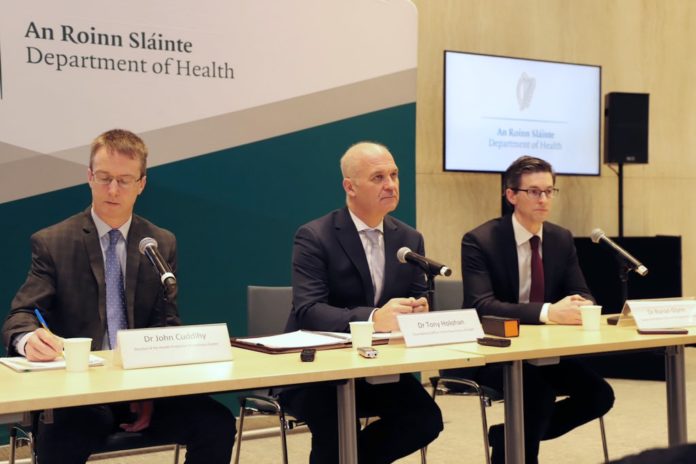On Saturday evening the country’s Chief Medical Officer, Dr Tony Holohan, praised young people for reducing their contacts and helping to protect the whole population.
Dr Holohan noted that the Covid-19 incidence in the 19 to 24 year age group has decreased from 432 per 100,000 population to 41 per 100,000, calling it “an enormous achievement” and encouraging others to follow the example.
The remarks have been interpreted as signalling a changing attitude within officialdom, a reversal of the characterisation of young people as not showing sufficient solidarity, even when the sectors they predominantly work in meant that ‘safe’ choices are often well outside young workers’ control.
Can’t stay home
“Young workers have been essential during this pandemic, and it is disgraceful to blame them for it,” says Julia Marciniak, Unite’s Hospitality and Tourism Coordinator.
“If you ask me if I have seen young people behaving irresponsibly, yes of course I did. But I have seen people of all ages not following government guidelines. People of all ages have, for example, joined ‘anti-mask’ groups or even protests.
“Some of our leading politicians, judges and media commentators have flagrantly breached Covid rules, and they are the very ones lashing out at vulnerable young people. It is completely wrong and unfair.”
Marciniak explains that the hospitality and tourism sector, which is dominated by young workers, suffered seriously during the pandemic, with thousands of workers temporarily laid off and some permanently losing their employment.
Workers have complained to the union about a lack of communication, of employers using the pandemic to further reduce wages, and having their annual leave used to offset the impact of the pandemic.
“Many employees felt that they are facing the same amount of tasks (but) with fewer workers to do them. Lots of workers suffer from anxiety because of the constant threat of losing their job, on top of the risk of contracting Covid-19.
“Lots of people didn’t feel safe working on the ‘front line’ but simply didn’t have a choice.”
Essential workers
This sentiment is echoed by Mandate Trade Union, which represents retail workers. “It’s not fair. Young people are at work more than other segments of the population and are therefore more at risk of contracting the disease and then, obviously, someone with the disease is more likely to spread it,” said a Mandate spokesperson.
“Blaming young people for the failures of the State is a distraction from the real culprits: the government, state policies implemented over decades and bad employers.”
The spokesperson pointed to the State’s refusal to impose travel restrictions or to intervene at meat plants, cramming people into Direct Provision and bad housing, and ignoring NPHET advice.Retail workers have, additionally, experienced increasing abuse from customers.
“Some workers in certain companies have had pay increases throughout the pandemic to compensate for the risks they’ve had but the majority are on the same wage, and in fact some have lost their Christmas bonuses.”
Going out
The accusations of a lack of sense and solidarity crucially overlook those young people who volunteered for extra responsibilities throughout the pandemic.
Within days of the first lockdown being declared in March, young people across the country had joined – or in many cases led – local organising efforts to ensure that vulnerable people in their communities were not left without food or medicine.
And while charities have had to reduce services, this was due to Covid-19 related regulations rather than young volunteers disappearing.
Inner City Helping Homeless (ICHH) is one of Dublin’s most visible charities, providing nightly outreach and support to the city’s homeless.
“Covid-19 has definitely impacted us,” says Brian McLoughlin, ICHH’s Head of Communications. Since February, the charity hasn’t been able to have its four walking teams working across the city but other work has continued.
“Currently we have approximately ten active volunteers who are under 26 doing a number of different tasks, from van support on outreach to making sandwiches and packing crates for outreach to volunteering in our warehouse sorting clothes or putting together food hampers.”
He added: “We have quite a few young people running online fundraisers at present for us.”





